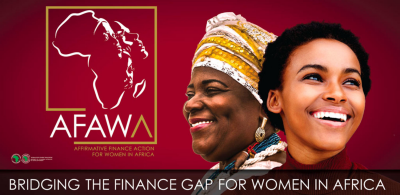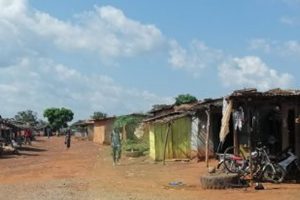Most Africans suffer poverty and inequality in various different forms, including income and employment, geography, age and gender. The gender dimension is particularly significant, with poverty rates among women and girls far higher than among men or boys.
Market research was commissioned in 2016 to help understand the economics of the gender divide in Africa. The findings were astonishing. A difference of $42 billion exists across the continent between men’s and women’s access to finance for business ventures and proposals. The financing gap for women in agriculture alone is $15.6 billion, a shocking amount given that women produce over 70% of Africa’s food.
Yet, in an area fraught with dodgy statistics, women’s ownership of agricultural land in Africa could be as little as 10% that of men. In Cameroon, while women undertake more than 75% of agricultural work, they own less than 10% of the land. Comparable disparities have been identified in Kenya, Nigeria, Tanzania and several other countries in sub-Saharan Africa.
The problem is obvious long before its apparent outcome. Education mostly determines careers. Girls tend to drop out of school earlier then boys and, in more rural areas, encounter particular difficulties even getting to school without being abused, harassed, or attacked along the way there or back.
Women, moreover, experience severe employment inequality even if most women work in some way or form. This is obvious on African streets. Women dominate the most fragile and poorest sectors of employment, for example as cleaners, bar-staff and stall-holders, where the returns are negligible. Men dominate the salaried and official jobs in professional, legal, and financial services. Women farmers dominate subsistence farming. Men dominate as landowners and in farmers’ organisations.
The African banking system discriminates against women, who are seen as risky borrowers. And yet there is abundant evidence in Africa that women pay back loans faster and more reliably than men. This is frequently referenced by the African Development Bank, which has a new fund to support women’s enterprise in Africa, the Affirmative Finance Action for Women in Africa (AFAWA).

AFAWA aims to transform the banking and financial landscape in Africa and create more incentives for lending to women in business, including a $300 million risk-sharing instrument to release $3 billion in credit for women’s businesses and enterprises; a rating system to evaluate African financial institutions based on the share and quality of their lending to women; and advisory services to financial institutions to ensure the successful implementation of their product portfolios for women.
The female entrepreneurship rate in sub-Saharan Africa is 25.9% of the female adult population, one of the highest percentages of women entrepreneurs in any country in the world, meaning that one in four women starts or manages a business, albeit at the bottom of the business pyramid.
But these figures do not illustrate a much more compelling fact. Women typically reinvest up to 90% of their income in the education, health and nutrition of their family and community, compared to up to 40% for men. This means that investing in women’s businesses can directly and quickly transform societies.
Without the full participation and equality of women at all levels, the African economy will remain hobbled, especially in terms of international competition and domestic resource mobilisation. There is a very strong economic argument to generate greater access for women to economic opportunities generally, and affordable finance in particular.
International development finance organisations, many of which are under pressure from their member countries to show greater development impact, are now lining up to fill that gap. However, they face two key challenges.
First, they cannot easily or directly help the very poorest, or make the very small loans appropriate for millions of women at the lowest economic level. Second, they must break down the many barriers to women’s enterprise in order to establish systematic, inclusive and sustainable funding systems that can change prevailing gender discrimination and bolster economic development.
There is simply no way of knowing the real figure for the multifarious scale and extent of poverty in Africa. However, if African economic development is managed with a commitment to improving access to finance for female entrepreneurs, extreme poverty can be substantially reduced, and huge economic opportunities will accrue to Africa’s men and women.



